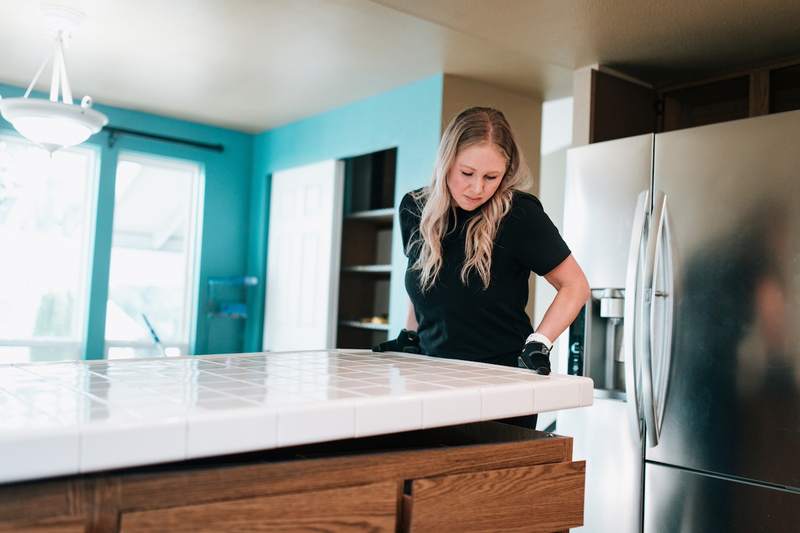Are you looking for a home and looking to save on closing costs where you can? If you qualify, VA loans are a wonderful benefit for our nation’s eligible servicemembers, veterans and qualifying surviving spouses. Among the major plusses are the competitive rates and that it’s one of the few mortgage options that allows you to generally buy a home with no down payment.
One thing you might not be aware of is that the VA loan seller concessions policy is also somewhat more flexible than what’s available for other loan options. We’ll go over what you need to know to take advantage of this, but let’s start at the beginning.
What Are Seller Concessions?
When a seller agrees to contribute funds toward closing costs, these are referred to as seller concessions. These help make the upfront cost of home ownership more palatable for potential home buyers, so it’s something that can be requested as part of the negotiation process.
When a seller agrees to concessions, they may be agreeing to cover specific closing costs or they could be offering to cover a percentage of those costs. The only constraints are that lenders and mortgage investors may limit the amount of seller concessions to a percentage of the lesser of the purchase price or appraised value. We’ll have more on that later.
How Do Seller Concessions Work?
Seller concessions are fees paid at closing by a seller. That could be anything not paid by the buyer that’s also not covered under a lender credit. Given this, a seller concession could come from coverage of pretty much any cost, but here are a few common ones:
- Origination fee: This is what lenders charge to underwrite and process your loan, doing all the checks and getting the documentation. Discount points paid to buy down the interest rate are also included in this section.
- Appraisal fee: An appraiser does a basic health and safety check to make sure that a home is move-in ready. The VA has specific regulations around a property’s health and safety. However, an appraiser’s main job is to place a value on your home based on comparable properties recently sold in your area.
- Title insurance: When you buy a home, you’re required to purchase a lender’s title policy, which protects your lender in the event that you lose your property in an ownership dispute. You can also buy an owner’s title policy that pays you if you lose a home this way. The owner’s title policy is sometimes thrown in as a concession by the seller.
- Property taxes: Property taxes may be prepaid for a certain amount of time by the seller.
- Attorney fees: In some states, an attorney is required to conduct the closing. In other cases, you may just want an attorney present to make sure everything is in order with the contract.
See What You Qualify For
Buy A Home
Discover mortgage options that fit your unique financial needs.

Refinance
Refinance your mortgage to have more money for what matters.
Tap Into Equity
Use your home’s equity and unlock cash to achieve your goals.
VA Loan Guidelines For Seller Concessions
VA loans have specific guidelines regarding seller concessions, making these loans a bit different from other mortgages. Let’s dive into what these are.
What Are The Specifics Of The VA Seller Concession Rules?
In general, any category considered a closing cost not paid by a buyer or otherwise dealt with using a lender credit is an eligible seller concession. This means the seller can pay for any of the following:
- Stamps
- Attorney fees
- Title insurance
- Real estate tax service fees
- Prepaid property taxes and homeowners insurance premiums
The categories allowed don’t really differ from any other mortgage. The difference comes in how the limits are handled.
What Are The Maximum Seller Concessions For A VA Loan?
Total seller concessions can’t exceed more than 4% of the lesser of the purchase price or appraised value. There is one big stipulation here. Any costs considered normally paid by the seller in your market don’t count toward seller concessions. For example, if it’s normal for a seller to pay a point so you can get a lower interest rate, that wouldn’t count.
It’s worth noting that with housing inventory being as limited as it is, what’s considered normal might be changing because sellers have a lot of leverage right now.
Guide to VA Loans
Discover a more affordable loan option for United States Veterans, Service Members and spouses.
VA Loan Seller Concession FAQs
Now that you know the basics, let’s run through some of your frequent questions.
What are the pros and cons of asking for seller concessions?
Asking for seller concessions has the benefit that if they agree to it, your closing costs could be lower. On the other hand, as we mentioned earlier, the fact that there are very few houses on the market relative to the level demanded in many areas across the country gives sellers a distinct advantage. They can be picky. They might pass over your offer.
One way you might be able to get them to agree to seller concessions is to pay a higher price for the home, assuming the appraisal comes in high enough. In this way, they pay the costs upfront and you pay for your closing costs over the term of your loan.
Do seller concessions have tax ramifications?
Seller concessions generally don’t have tax ramifications for the buyer, but there are a couple of things you might consider.
If you buy a mortgage point in order to lower your interest rate for the term of your loan, you may be able to deduct the cost of that mortgage point on your taxes. Sometimes you can deduct the full cost immediately and others you have to spread the deduction over the term of the loan. You can’t do this if the seller pays for the points.
One of the other things you can deduct is your local property tax payment. However, if any of your property taxes are prepaid by the seller, you can’t deduct that portion of your property tax bill.
You can check out more information on the relevant IRS guidelines. If you have any doubts, speak with a tax advisor.
Do seller concessions have other limits?
Although we’ve spent the majority of this post discussing VA loans, seller concessions can vary depending on the loan type being dealt with. Here’s a quick breakdown.
The amount of permissible seller concessions on conventional loans depends on both how the property is occupied and the down payment. Down payment percentage is based on the lesser of the purchase price and the appraised value. Here’s the breakdown on contribution limits for conventional loans:
Occupancy | Down Payment | Contribution Limit |
|---|---|---|
Primary residence | 25% or more | 9% |
10% – 24.99% | 6% | |
Less than 10% | 3% | |
Second home | More than 25% | 9% |
10% – 24.99% | 6% | |
Investment property | Any down payment | 2% |
FHA loans and USDA loans both have limits on seller concessions of 6% based on the appraised value or price of the home, whichever is lower.
The Bottom Line: VA Seller Concessions Can Contribute Up To 4%
VA seller concessions can be used to pay for anything not covered by you or a lender credit, including your VA funding fee. However, the total amount that a seller contributes can’t exceed 4% of the lesser of the appraised value or the price of the home. Additionally, you should know that sellers may pass on your offer if you ask for too much closing cost assistance.
Now that you understand seller concessions, maybe you feel prepared to buy.

Kevin Graham
Kevin Graham is a Senior Writer for Rocket Companies. He specializes in economics, mortgage qualification and personal finance topics. As someone with cerebral palsy spastic quadriplegia that requires the use of a wheelchair, he also takes on articles around modifying your home for physical challenges and smart home tech. Kevin has a bachelor's degree in journalism from Oakland University.












